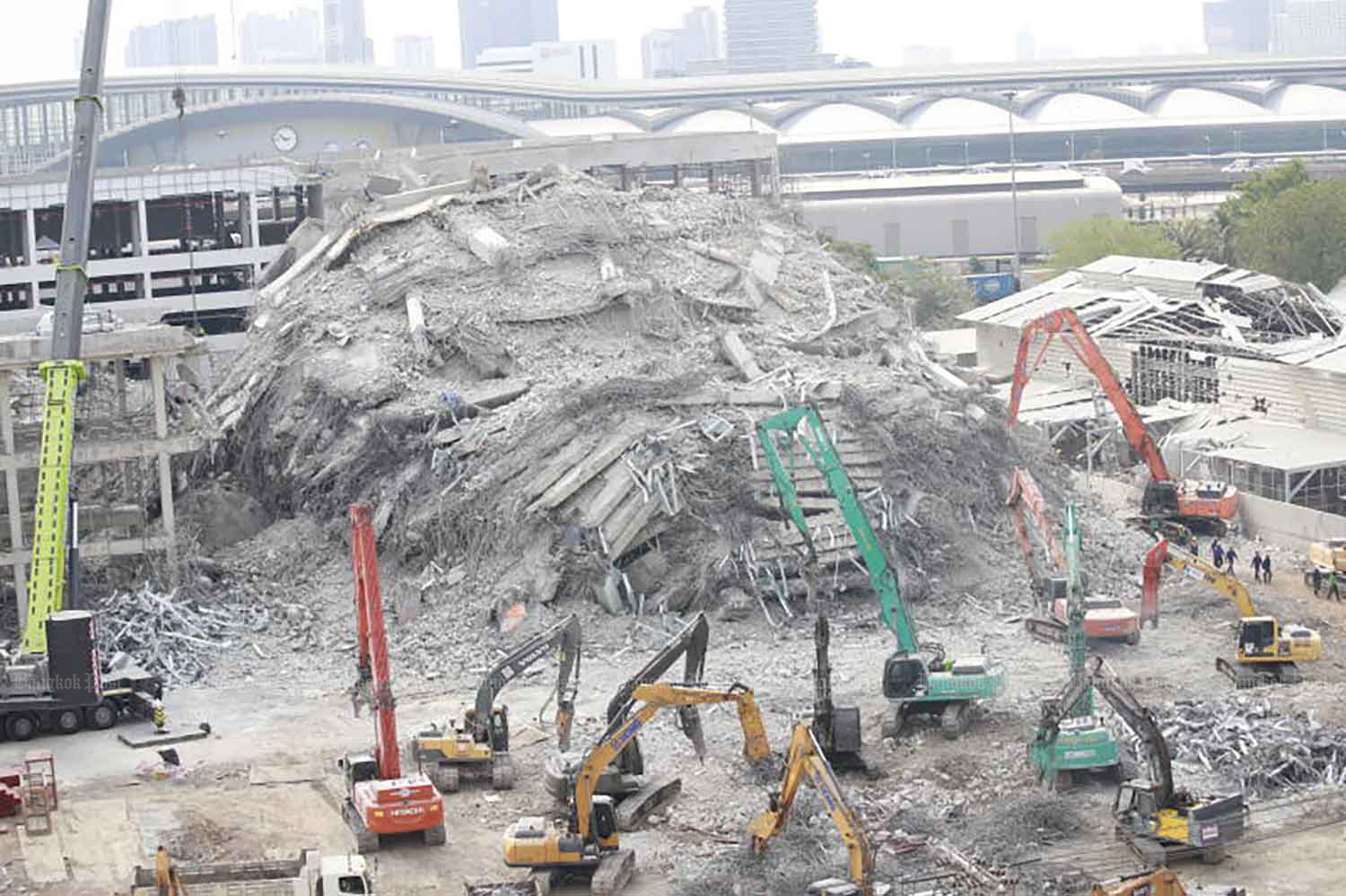Investigation Intensifies After Devastating Collapse
Probing the Cause of the Bangkok Skyscraper Failure
Following the catastrophic collapse of a 30-story building in Bangkok on March 28, 2025, authorities are nearing the point of pressing charges against those responsible. The structure, intended to serve as the new headquarters for Thailand’s State Audit Office, crumbled during a 7.7-magnitude earthquake originating in Myanmar. This incident, which claimed numerous lives, has sparked widespread outrage and a thorough investigation into construction practices and oversight.
Key Figures Under Scrutiny
Arrests and Allegations in Construction Scandal
A Chinese executive from China Railway Number 10 (Thailand) Co. Ltd., identified as Chuanling Zhang, was arrested in connection with the disaster. Authorities allege that Zhang violated business laws by using Thai nationals as nominal shareholders. Additionally, four individuals were detained for attempting to remove sensitive documents from the site, raising suspicions of a cover-up. The investigation is also examining engineers and State Audit Office officials for their roles in the project’s oversight.
Substandard Materials Uncovered
Quality Control Failures in Bangkok Tower
Tests on debris from the collapsed skyscraper revealed that some steel bars, supplied by Xin Ke Yuan Steel, did not meet safety standards. This discovery has fueled accusations of cost-cutting and negligence by the construction consortium, which includes China Railway Number 10 and Italian-Thai Development. The use of substandard materials is believed to have contributed significantly to the building’s failure, prompting calls for stricter enforcement of construction regulations.
Public and Official Response
Thailand Demands Accountability and Reform
Thai Prime Minister Paetongtarn Shinawatra has publicly demanded a comprehensive probe into the collapse, questioning the design and approval processes. Bangkok Governor Chadchart Sittipunt has emphasized the need to identify the root cause to prevent future tragedies. Public anger has been further stoked by revelations of lavish expenditures on the building, including high-cost furniture, which has intensified scrutiny of potential corruption in the project.
Path Forward for Construction Safety
Strengthening Regulations Post-Disaster
As the investigation progresses, Thailand is taking steps to enhance disaster preparedness and construction standards. A new cellphone alert system is being tested to provide rapid warnings for natural disasters. Meanwhile, the collapse has sparked a broader debate about the safety of high-rise buildings in Bangkok, a city known for its towering skyline. Authorities are under pressure to implement reforms to ensure such a tragedy does not recur.









